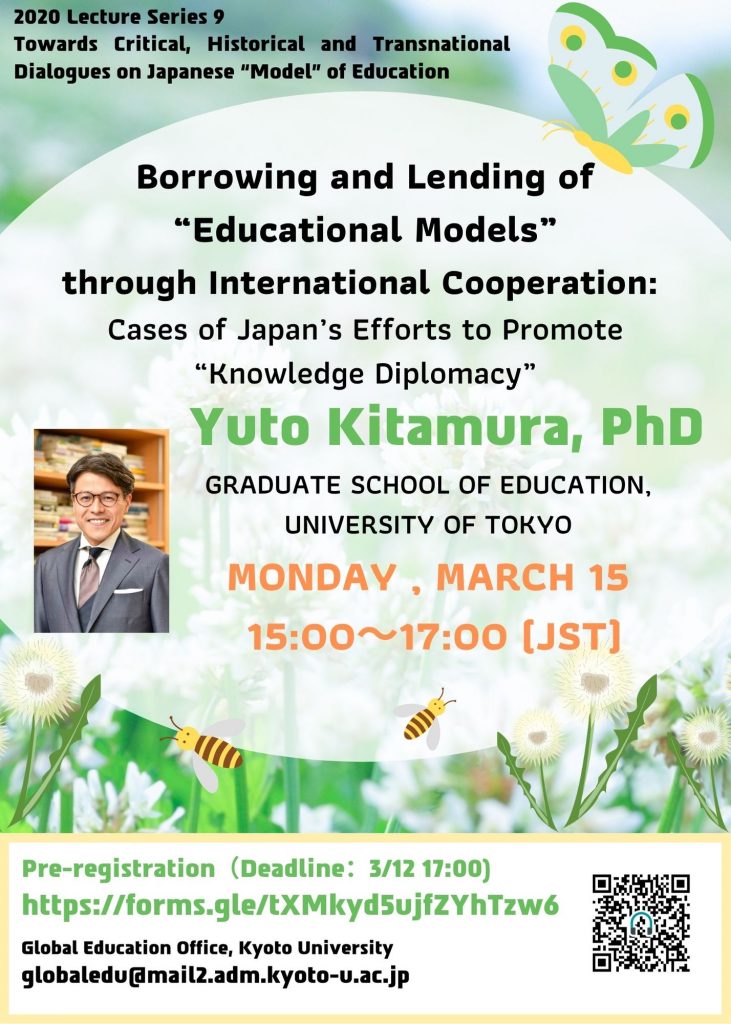講演の要旨
Comparative education research has its origin to analyze ideas, systems, and practices of education in different societies/countries for the purpose of improving education in one’s own society/country. Today, in the era of globalization, it is particularly important for comparative education research to reveal how some societies/countries borrow and lend “educational models” each other. Globalization promotes both unification/standardization and division/diversification simultaneously, and it is essential for the field of comparative education to raise a question how such complex phenomena take place through educational borrowing and lending. In this lecture, I will discuss how educational borrowing and lending have been happening between developed countries and developing countries, by referring to cases of the EDU-Port Japan and some other programs. In my discussion, I will apply the notion of “knowledge diplomacy” to understand a nature of current forms of international educational cooperation between developed countries and developing countries.
